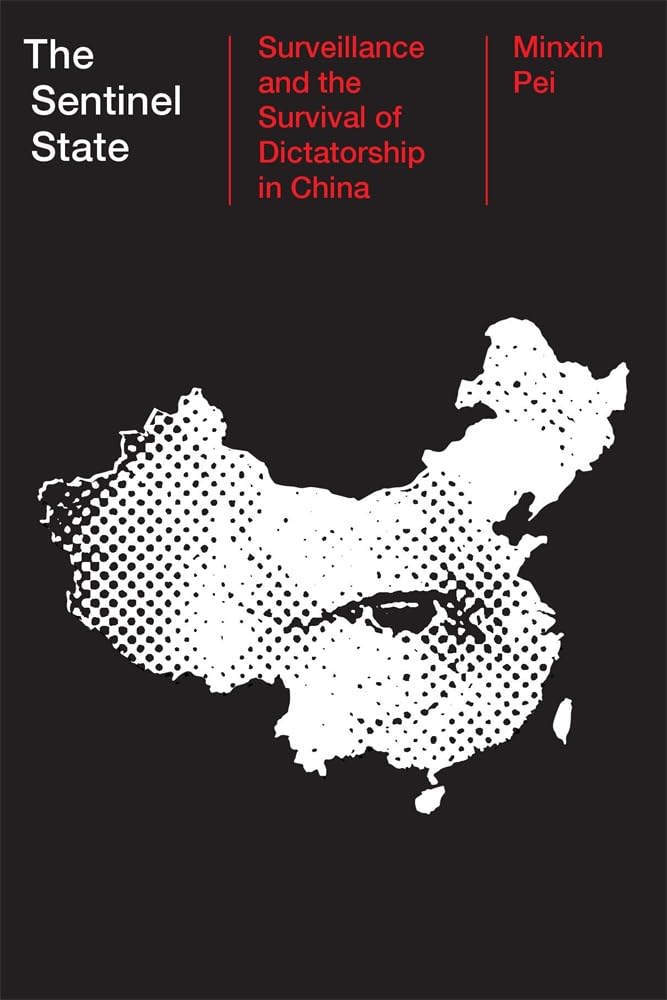Sign up for our newsletter to be notified of new posts!
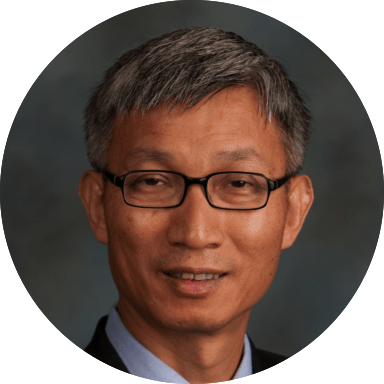
Minxin Pei is a political scientist who specializes in China’s modern development and governance. He is Professor of Government at Claremont McKenna College in California, and a non-resident senior fellow at the German Marshall Fund of the United States. Pei is the author of From Reform to Revolution (1994), China’s Trapped Transition (2006) and China’s Crony Capitalism (2016). In his latest book The Sentinel State, he argues that political authoritarianism in China owes less to facial recognition AI and GPS tracking than to the human resources of the Leninist surveillance state.
In a Q&A from our sibling site The Wire China, ungated here, Rachel Cheung asked Minxin Pei about the organization, tactics and evolution of China’s surveillance state, and the labor-intensive infrastructure of domestic spying.
You put forward the idea of “preventive repression” to describe the way China approaches surveillance. Can you explain what that is and how effectively the Chinese government has been in deploying this strategy?
There are two kinds of repression. One is “ex-post” repression: that is, you crack down after something happens. The other kind is “ex-ante repression”: that is, you repress before something happens, which is what I call preventive repression. Ex-post repression is much more costly. China’s Tiananmen crackdown in 1989 is a classic example: you have to kill a lot of people, incur immense reputational cost, and you destroy your credibility. You show your weaknesses, and very few smart regimes want to go through that.
Preventive repression is really something the Chinese Communist Party learned after the Tiananmen [uprising in 1989]. They never wanted to go through that experience again. So over the next 30 years, they gradually improved their capability to prevent a direct, powerful challenge to the Party’s leadership. This is what we now call the “surveillance state”: the way in which the state monitors people, knows what kind of people are going to pose direct threats, and what kind of actions they need to take before the threat becomes too real and too strong.
One interesting feature you mention is that the size of China’s coercive apparatus is relatively small compared to that in some other countries. If that’s the case, how is it so effective in monitoring and controlling its population?
China is governed by a so-called Leninist party, which is top-down, very organized, and has cells throughout Chinese society. It can employ a lot of informal helpers, people who are not formally part of the security forces but can still perform security functions. They include neighborhood committees, party organizations in factories and in villages, and of course political activists, and informants. If you include these people, the security establishment is actually massive. There aren’t that many people on the payroll, but the amount of people who actually do the job is in reality huge.
This vast network of active informants — numbering as many as 15 million, according to your estimate — is a key aspect of the state security apparatus. What role do they play? What do they get in return?
There are several categories of informants. One category of informants, which is the most numerous, is known as the xinxiyuan (信息員). Even though official sources do not tell us who actually recruits and who runs them, it seems to be local communist party cells and ultimately local political-legal committees, zhengfawei (政法委).
So what do the xinxiyuan do? It’s actually a variety of duties based on the classification of the kind of information they provide. The first kind [of information], called enemy intelligence or diqing (敵情), is the most valuable. It deals with things like what this Falun Gong person is up to, or what that political dissident is up to. The amount of information generated that belongs to this category is only about 3%, a tiny percentage of the total amount. In fact, 97% of the information [generated by xinxiyuan] deals with what is going on in Chinese society. This plays a useful role for the government so that it can know what troubles might be brewing within Chinese society.
The ones that are directly hired by the police are called teqing (特情), or special intelligence personnel. Information on this category is highly classified, so we don’t know much about them. Another category is called the ermu (耳目), the ears and eyes of the police. They are employed by beat cops.
Within these two categories, some people carry out very routine law enforcement duties, reporting on suspicious people who might be committing ordinary crimes. But some are assigned sensitive political duties, such as watching out for known Falun Gong [a spiritual movement banned by China since 1999] practitioners, or people suspected of being part of underground churches, or political dissidents.
The sources of my research are local yearbooks, nianjian (年鑑). Chinese local governments and bureaucracies, including bureaus of public security, publish their annual reports in the form of yearbooks. Typically, these yearbooks contain brief summaries of major accomplishments of either the previous or current calendar year.
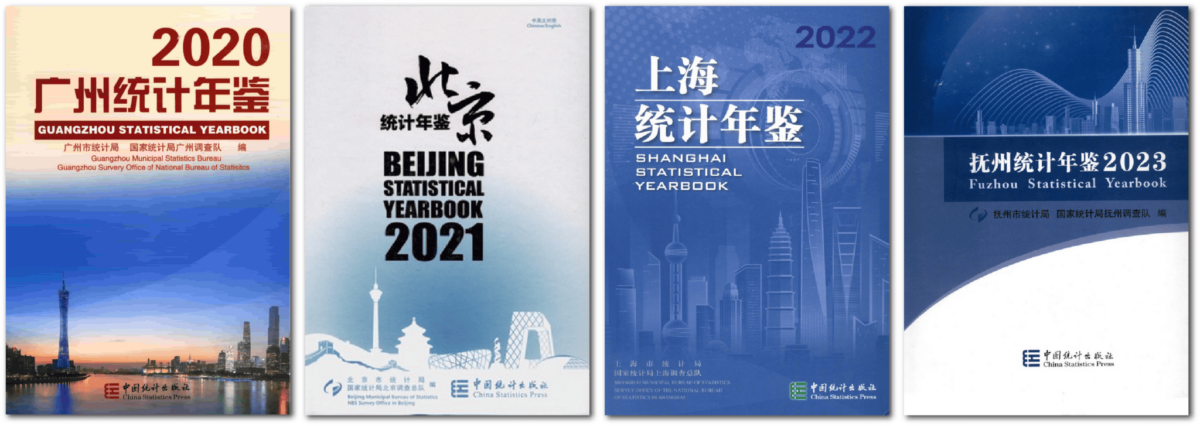
The yearbooks do not tell you about what these two categories of informants do. But based on the disclosure of one really valuable police gazette, gonganzhi (公安志) from Shaanxi province, we know a little bit about what teqing and ermu do. About 10% of these police-run spies infiltrate suspected criminal gangs, dissident groups and underground churches. About 40% watch particular venues, such as libraries, railway stations, airports, shopping malls. They call these ‘battlefields’ because these areas can be important in terms of dissident activities or public safety. And then the other 50% of the spies perform generic intelligence functions. So on a regular basis, their handlers would come to them and say, what have you been hearing these days?
The motivations [of these informants] vary because the Communist Party has a lot of leverage over people. This is a very powerful Party. It controls the economy. It controls access to future opportunities. It can actually punish you if you do not agree to do things the Party wants you to do. It uses a mixture of offering potential gains and also fear.
Speaking of informants, the rest of the world has become increasingly concerned about China extending its surveillance abroad. What are the primary ways China monitors its citizens overseas?
Local yearbooks don’t talk about what’s happening outside of the country because it’s not part of the responsibility of local governments. What we know about what the surveillance state does outside the borders of China is very, very sketchy. It is much more difficult for the Chinese government to keep tabs on threats outside its borders because it simply does not have the same coercive capacity, or the same leverage over people outside China as it does within China, or the organizational infrastructure.
Of all the different tools that China has for political and social control, one that is less talked about is what is called “grid management.” How does that work?
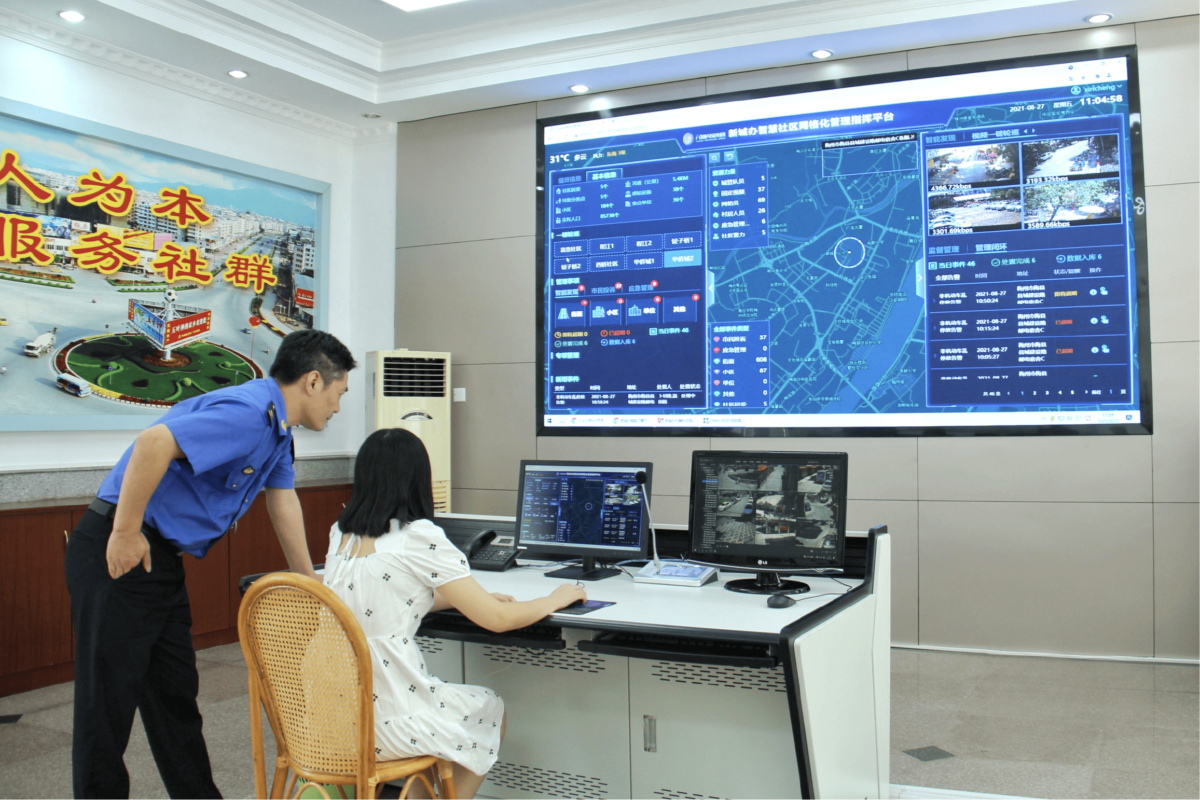
Grid management was initially launched about two decades ago in Beijing as an experimental model for improving public safety and social control. About a decade ago the Chinese government began to implement this new model nationwide. Grid management is appealing because it is very scientific and data-driven, as well as amenable to both labor-intensive surveillance and modern technology.
Each “grid” consists of roughly 1,000 people, or 300 households. The government assigns a “grid attendant” who patrols the grid to report issues related to public safety, traffic, sanitation, and social stability. The attendant is supposed to be equipped with a smartphone and a specialized app. He or she will report things that need to be reported to the higher “grid,” typically a neighbor, which will either address the issue or report it upwards. This system is designed to allow higher authorities to maintain real-time awareness of what is going on at the lowest level of the state.
On paper, it looks like a perfect system: They can report incidents as they are happening. But in reality, it’s actually quite difficult because the grid attendants have to be paid and aggregating information is really tough. So it’s still a work in progress. But if I had to bet, grid management will probably prove to be more successful than the social credit system because social credit is technologically much more challenging to implement.
A lot of surveillance activities happen in a very subtle way so targets themselves do not know it is happening, and the majority of the population actually aren’t aware of it.
How does China’s surveillance state compare to previous police states?
East Germany had a much bigger secret service. [But] the capacity of the Chinese surveillance state, because of the technological piece, makes it much more powerful and effective than the Stasi. Today, if you go from Beijing to Shanghai, the police in Shanghai will know where you are the moment you turn on your cell phone. East Germany simply did not have that capability.
What about its limitations?
We have to talk about this in two parts. The tech piece actually is much more limited than you might think and relatively easy to defeat because it is rigid. If you wear a mask or a hat, you can make it very hard for facial recognition cameras to recognize you. If you wrap your phone in aluminum foil, they cannot track your phone. We should not overplay the technology.
The labor piece is more difficult [to evade], because you really don’t know which of your colleagues are spying for the government. The Chinese system employs a lot of people in the neighborhoods: taxi drivers, shop owners. The biggest limitation is that this system watches over known threats. It has no way of predicting or foreseeing unknown threats.
A trial of SenseTime’s facial recognition software in China (Robert McGregor/YouTube)
The other limitation is that the current surveillance system is really effective in a steady state, when the economy is doing relatively well and the majority of the people are satisfied with the status quo. My study shows that the number of people on the black list of the Chinese government is equivalent to about 1% of the population. That’s tiny. But what if a lot more people become jobless? A lot of people are already not happy. All you need to do is to increase the number of people who can potentially become a threat from 1% to 2%, and that will potentially overwhelm the system. The system is effective in certain conditions. When the overall environment is much more volatile and unstable, it will come under enormous strain.
Speaking of the protests against the COVID lockdowns at the end of 2022, did they catch Beijing by surprise? And what does that tell us about the public sentiment bubbling beneath the surface?
They caught Beijing by surprise for a lot of reasons. First, it happened on a Saturday, so a lot of officials were actually not on duty. The Chinese system is very top down. People in Shanghai had to wait for instructions from Beijing. The Politburo did not meet on that Saturday, so they lost a lot of time. If you do not crack down in the first 24 hours, there will be a lot of copycat activity.
As I said, the surveillance state does not operate in a vacuum, there is a context. If the government screws up or pursues a really bad policy, you can be a hundred percent confident that some protests will occur because people simply cannot take it without expressing something.
You estimate that China’s mass surveillance programmes cover about 0.76 to 0.91% of the population. How about the rest of the population? Are their daily lives affected? Is there any pushback?
A lot of surveillance activities happen in a very subtle way so targets themselves do not know it is happening, and the majority of the population actually aren’t aware of it. And probably some of them think that, well, if this system can prevent crime, I’m okay with it. That’s why we do not see a lot of negative reaction on the part of the people over the use of social credit, facial recognition, and informants.
Even with the help of advanced technology, maintaining stability and surveillance is resource- and labor-intensive. Could China’s economic slowdown affect its sustainability in the long run?
Oh yes, the tech part will be impacted first and probably more seriously. 85% of China’s domestic security budget is funded by local governments and they are under enormous fiscal stress these days.
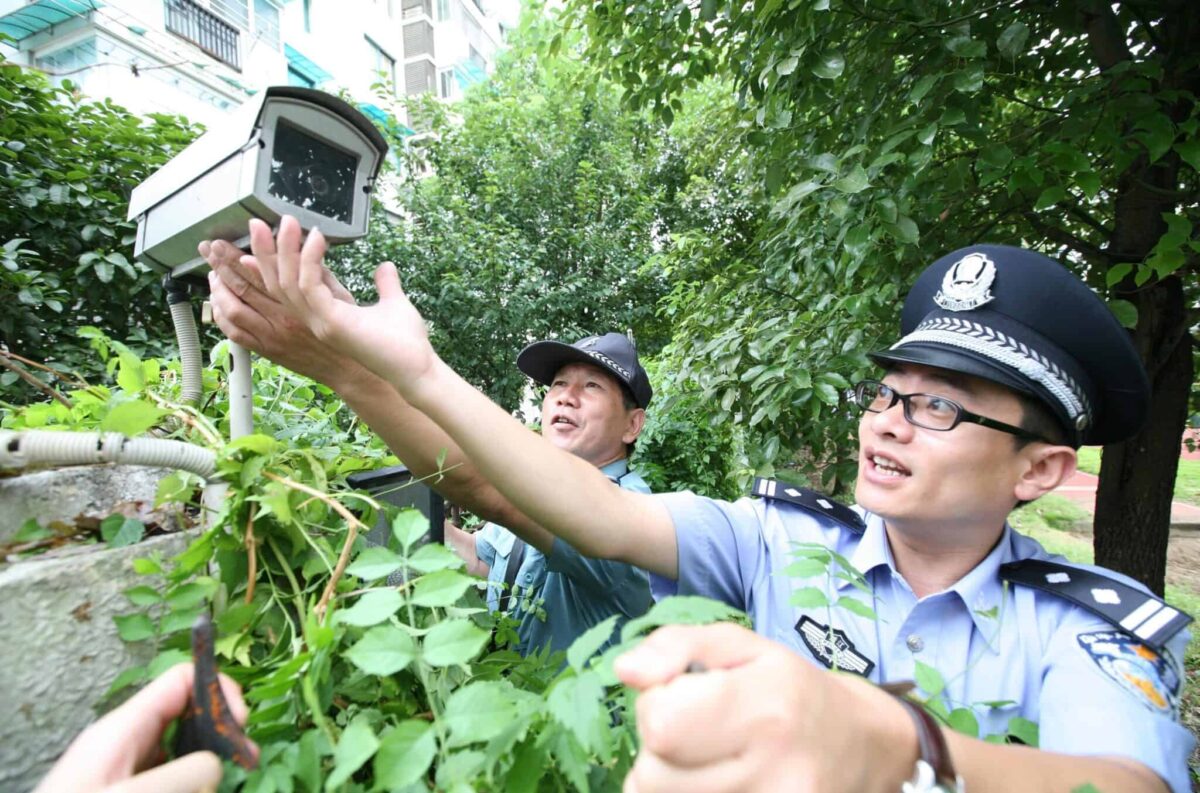
So what will they cut? High-tech surveillance equipment is very expensive. People have this unrealistic notion that if you introduce high-tech, you save money. The opposite is true because these things have to be maintained. I saw this in reference to facial recognition. The cameras require constant cleaning because if they are dirty, they are not going to work, and China is a very dusty place. Going forward, constant upgrading and maintenance is going to be a huge expense for the local government.
The other issue is that if the economy is not doing well, you’re going to have more unhappy people, more protests, more petitions and that will expand the blacklist, so you need to watch more people. And third, informants will need to be paid a bit more in order to spy for the government and that means yet more outlays. By and large, a more difficult economic environment will pose new challenges for the Chinese government in terms of maintaining its preventive repression systems.
Under Xi Jinping, we’ve seen China prioritize security over economic growth. Is there any sign of that changing in the future?
No, I don’t think so. If anything we’ll probably see a doubling down because repression is what the Party knows best. It doesn’t know how to let off steam by relaxing press control or repression so that ordinary people can have more channels to express their discontent and criticisms of the government, such as allowing more petitions and venting online. For the Party, these things are not reliable. The Party knows how to use the rule of fear to maintain control.
My guess is that as preventive repression loses its effectiveness, you might see a lot more reactive repression — that is, the Party using harsher and harsher methods to deal with unrest. Of course, the Party does not want to do this, but it may have no other choice.
Speaking of elite politics, what do you make of [former foreign minister] Qin Gang’s disappearance?
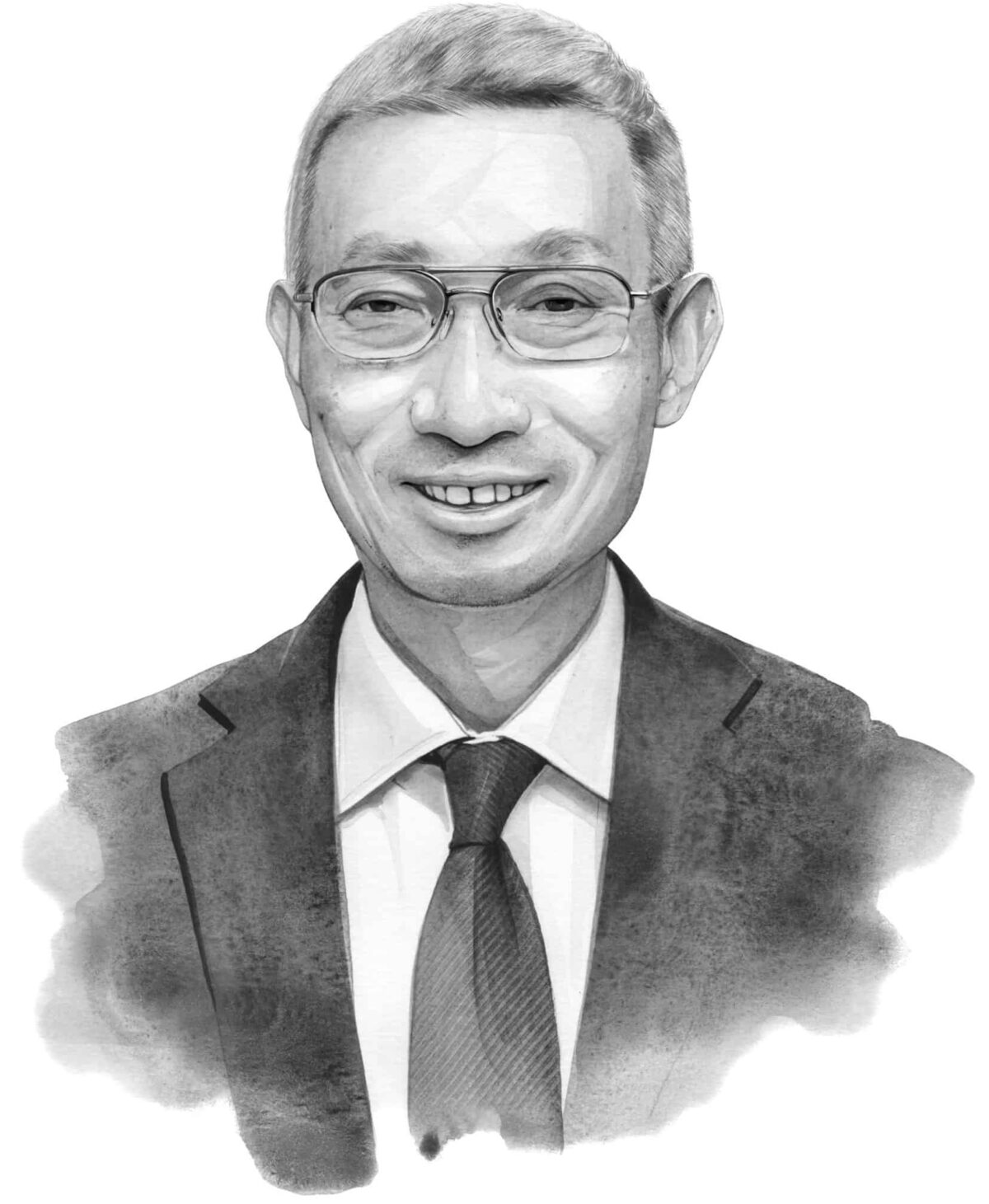
Everything we hear about this case is very entertaining!
The real problem today is that Xi Jinping has a unique challenge. All his predecessors needed to care about is what kind of people they would promote within ten years, and more or less, these were the people they knew and they had worked with. Xi’s problem is that he’s going to rule beyond ten years. So he has had to go down to a group of people who are a lot younger, with whom he has had very superficial contact. The way top leaders get to know people is when they actually work with them in cities and in provinces, because once they’re in the central government, they are not allowed to socialize, or to go to karaoke, so they have barriers to developing relationships. Xi Jinping today has this huge problem of identifying the younger people who are actually going to work out.
There also seems to be no end to Xi’s anti-corruption campaign. There’s always a new official being targeted. Does this simply reflect how pervasive corruption is, or is it driven by the need for political control?
I think both. The way corruption should be fought is actually not by using campaigns because by definition they are not sustainable. People can lie low and then when the campaign is over, they can go back to business as usual.
But I also think it is a form of control. The Party today has to be controlled through the rule of fear. So it’s like the Maoist era, although then it wasn’t corruption, it was revisionism. It ends up as the same thing. That is, you want to maintain a very powerful weapon against people who display or who are suspected of political disloyalty. Using corruption as an excuse to target someone is much easier than accusing them of being politically disloyal.
One of my hobbies is to read the Party’s denunciations of disgraced officials. Because it actually uses a formula: You never see the first crime listed as political. It’s always about corruption to start with. The third, fourth and fifth criminal charges are often far more interesting. In other words, they’ve got to have this big umbrella, this broad category of wrongdoing — corruption — in order to punish other offenses.
A phrase I pay special attention to is “unauthorized organizational activities.” What does it mean? Maybe this guy wants to form his own network, so that is a very dangerous activity. Also, the phrase wangyi zhongyang (妄议中央) or “recklessly discussing central government policy” — which means the guy actually has some different opinions. The use of coded words really helps me understand why the anti-corruption campaign is still ongoing after ten years, because it helps the authorities to capture people accused of so many other crimes.
Back to the tightening of control, how long can this go on? Will the pendulum have to swing the other way at some point?
A great question that nobody can answer. Autocratic regimes and their capacity to survive in difficult conditions vary a great deal. 30 years ago, everybody was saying North Korea was going to collapse, people were starving, and the country could not produce enough [food]. Today, it’s still there, so there are no scientific rules for us to follow.
But if one thing’s true, it’s that the good times for the Communist Party are probably in the rear-view mirror, that is the 1990s and early 2000s and probably before 2018 or 2017 or the trade war. Those days are gone. ∎
Header image: DALL·E/OpenAI.

Rachel Cheung is a staff writer for The Wire China based in Hong Kong. She previously worked at VICE World News and South China Morning Post, where she won a SOPA Award for Excellence in Arts and Culture Reporting. Her work has appeared in The Washington Post, Los Angeles Times, Columbia Journalism Review and The Atlantic, among other outlets.


